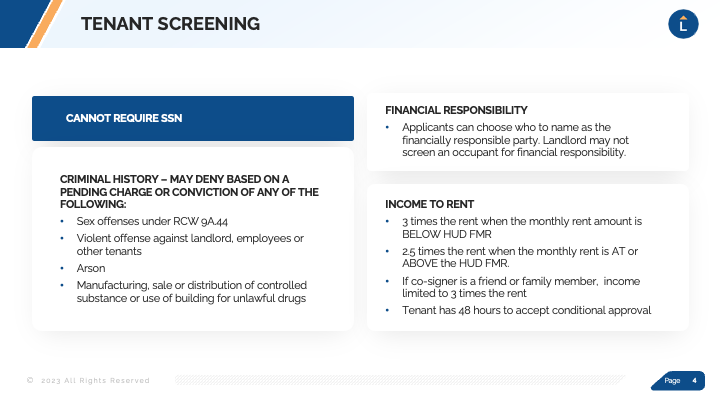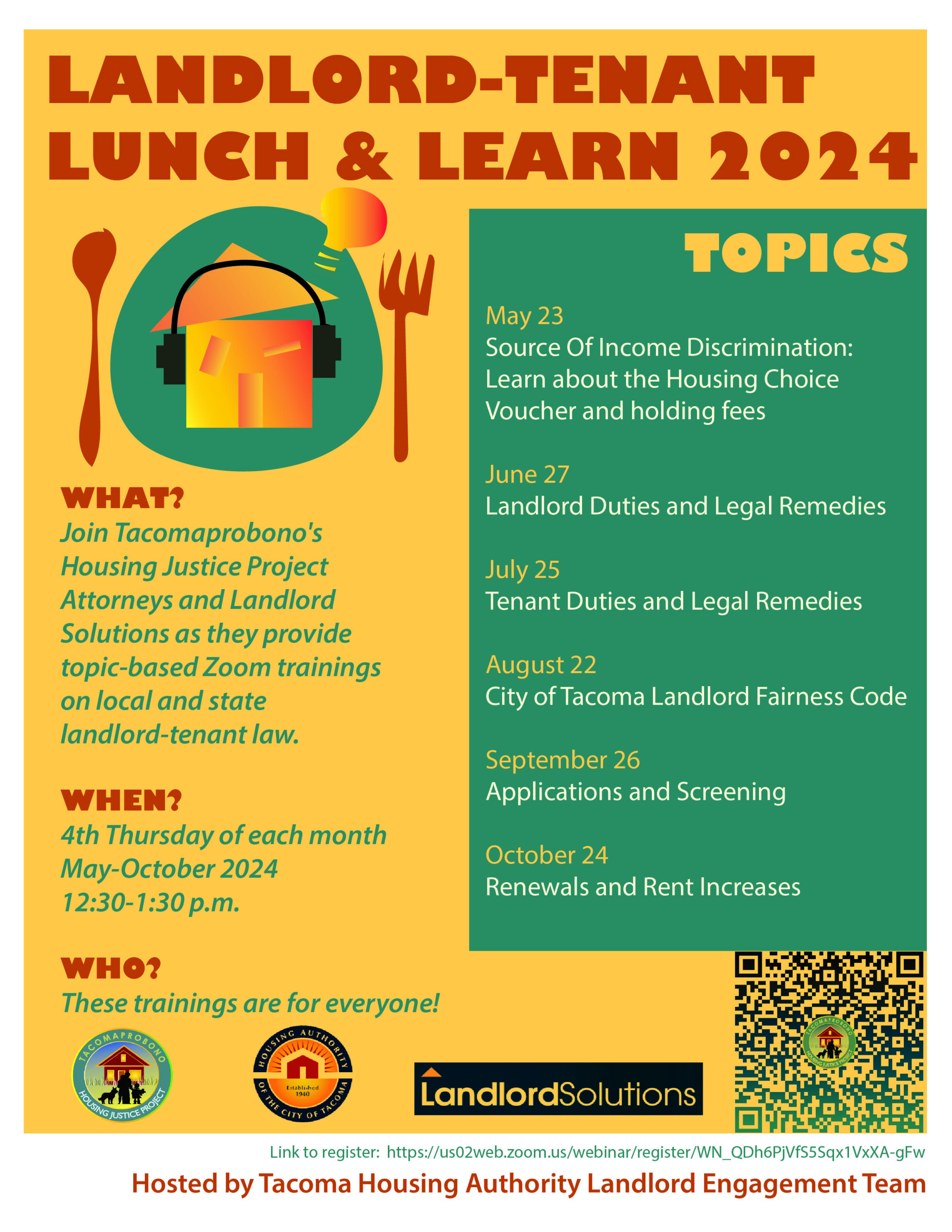On Wednesday, May 29, the King County Superior Court adopted an emergency amendment, effective immediately, to LCR 40.1(b)(1)(L), for unlawful detainer actions where noncompliance by the defendant is alleged to substantially affect the health and safety of other tenants.
This emergency ruling appears to be an attempt to streamline unlawful detainer actions for resident behavioral issues that pose a risk to other tenants.
In an action where substantial noncompliance by the tenant with any portion of RCW 59.18.130 or 59.18.140 is alleged to substantially affect the health and safety of other tenants, or substantially increase the hazards of fire or accident, as provided in RCW 59.18.180, and the allegations are supported by prima facia evidence, a motion for assignment of the case to a judge shall be submitted without oral argument to the Chief Civil Judge. If the Chief Civil Judge grants the motion, the Chief Civil Judge will assign the case to a judge with a trial date. Once assigned to a judge, the moving party shall present a motion to show cause to the assigned judge as required by LCR 7(b)(9), and the entire case is before that judge, including all other motions except as provided otherwise in these rules or by the court.
Update from Attorney David Britton:
KCLCR 40.1(L)(ii) provides a new procedure for Show Cause hearings where the landlord has alleged tenant conduct that "substantially affects the health and safety of other tenants . . . or substantially increasing the hazards of fire or accident." For such cases, the landlord must allege in the Complaint that the tenant has engaged in such conduct, and in its motion to assign the case to a trial judge, the landlord must produce prima facie evidence of such tenant conduct. If this is done, landlord's counsel can file a motion for assignment of the case directly to the Chief Civil Judge; this motion will be heard without argument. If the Chief Civil Judge grants the motion, (and I would guess given the purpose of the new rule, that this would happen relatively quickly), Chief Civil would immediately assign the case to a trial department (Judge), and assign a trial date. This does not mean that the case would have to be tried. Once the case has been assigned to a trial judge, the landlord can move for and obtain an order to show cause from the trial judge, and then note a show cause hearing before the trial judge as opposed to the Ex Parte and Probate Department. From there, presumably, the show cause hearing would proceed just as any other show cause hearing in an unlawful detainer.
This expedited case-reassignment option is available to landlords who have a tenant who is engaging in conduct that "substantially affects the health and safety of other tenants . . . or substantially increase[s] the hazards of fire or accident." What kind of conduct is covered? I actually think the language of the rule makes it reasonably clear. Someone is shot inside the apartment. Someone inside the apartment is out on the second-floor balcony screaming obscenities and throwing small kitchen appliances. Someone in an upstairs unit is leaving the water running until it starts pouring into the unit below, and locks the property manager out when they come to investigate. (And yes, these are all things that happened). Generally, it's the type of conduct that is going to be "just cause" for eviction under RCW 59.18.650(2)(c), "waste, nuisance, or illegal activity," with the added requirement that the conduct pose an actual threat to the health or safety of another tenant.
This will mean that you will need both the specificity in describing the conduct in the 3-day notice that is already required by RCW 59.18.650(2)(c) and (6), and the level of proof generally required to present your case at the show cause hearing, before you proceed with a motion to assign case to the trial department. For illegal activity, a police report showing that someone was cited or charged with breaking a law is good. A card with the officer's name and an incident number is of course worthless. And if the conduct is at all serious, there should be one or more charging documents (called an Information and/or a Statement of Probable Cause) filed in the Superior Court in a case charging the tenant with a felony. Other things that can work are eyewitness reports from the neighbors, in the form of signed, dated declarations under penalty of perjury, (e-mails and texts are worthless), inspection reports detailing property damage and what likely caused it, or even repair bills doing the same. Some of these will be hard to get, but you need them. And remember that the activity has to pose a health or safety hazard - it can't just be a series of annoyances, like noise complaints.

